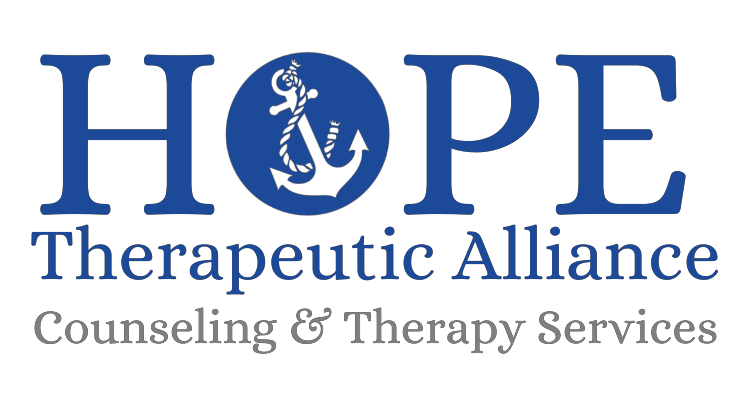
Acceptance & Commitment Therapy (ACT)
Acceptance and Commitment Therapy (ACT): Finding Freedom From Trauma Through Mindfulness and Values
Understanding How ACT Helps You Live with Purpose
Sometimes, no matter how much time passes, the pain, worry, or self-doubt never seems to fully go away. You’ve tried to push your thoughts aside, distract yourself, or “move on,” but they always seem to find their way back. ACT helps you stop fighting with your mind and start making peace with it. Instead of trying to eliminate uncomfortable emotions, you learn how to hold space for them, while still choosing to live a life guided by your values, not your fears.
The Core of Acceptance and Commitment Therapy
Acceptance and Commitment Therapy (ACT) is an evidence-based approach that helps you stop struggling against painful thoughts and emotions, and start living a life that feels meaningful, even when discomfort is present. Instead of trying to “get rid” of anxiety, sadness, or fear, ACT teaches you how to make room for those experiences while focusing on what truly matters to you.
At its core, ACT helps you build psychological flexibility, the ability to stay present, open, and intentional no matter what your mind throws at you. Through mindfulness, acceptance, and values-based action, ACT helps you move from simply surviving to living with purpose and authenticity.
The Six Key Processes of ACT
ACT is not about avoiding pain; it’s about learning how to respond to it differently. The structure of ACT focuses on six core processes that work together to help you create a fuller, more balanced life.
1. Acceptance
Instead of fighting uncomfortable thoughts or emotions, you’ll learn how to acknowledge and make space for them. Acceptance doesn’t mean liking your pain; it means reducing the struggle against it so it has less control over you.
2. Cognitive Defusion
You’ll learn how to see your thoughts as just thoughts, not absolute truths. This might include visualizing your thoughts as leaves floating down a stream or clouds passing in the sky, helping you separate yourself from your mind’s constant chatter.
3. Being Present
ACT emphasizes mindfulness; staying connected to the here and now rather than getting lost in past regrets or future worries. You’ll practice grounding yourself in your senses and your environment, even during stressful moments.
4. Self-as-Context
This process helps you connect with the part of yourself that observes your experiences rather than being consumed by them. It’s the difference between “I am anxious” and “I notice I’m feeling anxious right now.” This shift builds resilience and self-awareness.
5. Values Clarification
You’ll identify what truly matters to you, your values, priorities, and the kind of person you want to be. Your values become your compass, guiding decisions and actions that align with who you are and what you care about most.
6. Committed Action
Finally, you’ll learn how to take practical steps toward living your values, even when it’s uncomfortable. This might mean setting boundaries, pursuing relationships, or making lifestyle changes that align with your goals and identity.
How ACT Supports Your Healing and Growth
ACT helps you build a healthier relationship with your thoughts and emotions. Instead of feeling trapped by anxiety, grief, trauma, or self-doubt, you learn how to coexist with them while still moving forward. Over time, this approach can:
Reduce anxiety, depression, and emotional avoidance.
Improve self-awareness and emotional regulation.
Help you make decisions guided by values, not fear.
Build resilience in the face of stress or loss.
Strengthen confidence and purpose in your daily life.
Many clients describe feeling more grounded and capable, not because the pain disappears, but because they no longer feel defined or controlled by it.
What Sets ACT Apart from Other Therapies
Unlike traditional therapy models that focus primarily on symptom reduction, ACT helps you live well with your emotions, rather than constantly fighting them. It emphasizes mindfulness, acceptance, and purposeful living over perfection or control.
ACT is deeply experiential, meaning you’ll practice the skills in real time during sessions. It’s not about endless analysis; it’s about developing tools you can use every day to respond more effectively to life’s challenges.
What ACT Can Mean for Your Life
ACT helps you shift from being at war with your mind to being at peace with yourself. You’ll learn to approach pain with curiosity instead of resistance and to make choices that reflect your deepest values rather than your fears.
This process is about rediscovering the freedom to live fully, to love, connect, and create meaning even when life is uncertain or uncomfortable.
Is ACT the Right Fit for Your Healing Journey?
ACT might be a good fit if you:
Feel stuck in cycles of worry, avoidance, or emotional struggle.
Want to learn practical, mindfulness-based tools to handle stress or trauma.
Are ready to focus on growth and values instead of “fixing” emotions.
Want to live more intentionally and authentically, even in the presence of pain.
If you’ve been waiting to “feel better” before living your life, ACT can help you start living now. It teaches you that healing isn’t about avoiding pain, it’s about learning how to carry it with purpose, strength, and self-compassion.


